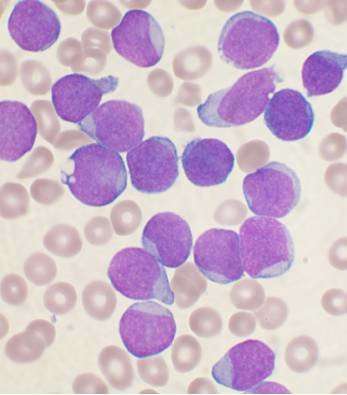
Scientists at St. Jude Children’s Research Hospital have revealed a biological mechanism that increases the odds of developing a high-risk type of pediatric leukemia. Inherited (germline) genetic variants have been associated with susceptibility to acute lymphoblastic leukemia (ALL). The molecular mechanisms that link inherited and cancer (somatic) genomic changes in this context are poorly understood. The findings show how an inherited variant in the GATA3 gene influences the process by which a child develops Philadelphia chromosome-like (Ph-like) ALL. A paper on the work was published today in Nature Genetics.
Ph-like ALL is a high-risk subtype of B-cell ALL (B-ALL) that has poor survival and a gene expression profile similar to Ph-positive ALL. Scientists at St. Jude previously conducted a genome-wide association study (GWAS) on Ph-like ALL. Building upon that, they have now sequenced the GATA3 gene in more than 5,000 patients and identified the specific variant driving the association.
GATA3 is well known for its role as a transcription factor in T cell development and is therefore more often associated with T cell leukemias. These researchers wanted to understand the mechanism that causes this inherited GATA3 variant to interact with other genomic features of B-cell leukemia.
“This study serves as a model of what should follow after cancer GWAS,” said co-corresponding author Jun J. Yang, Ph.D., St. Jude departments of Oncology and Pharmaceutical Sciences. “It’s a departure from many other cancer genomic projects because their focus is most often on somatic, or cancer, DNA.”
“Adding the germline component provides a unique angle and opportunity for us to understand cancer biology,” Yang said. “Had we not done a GWAS, we would have never thought of GATA3 for having such an important role in B-ALL.”
A mechanism of activation revealed
Using CRISPR-Cas9 genome editing and Ph-like ALL patient samples, the researchers showed that the inherited variant activated a strong enhancer that turned on and increased GATA3 transcription.
They found that if GATA3 expression is higher, it translates into an increased propensity for genetic rearrangement affecting a gene called CRLF2, a known oncogene for leukemia. This rearrangement occurs because GATA3 directly regulates the expression of CRLF2.
This study provides evidence for a distinct mechanism that causes an inherited, non-coding variant to help activate an oncogene through epigenetic regulation and 3D genome reprogramming.
“We figured out how an inherited risk variant for ALL regulates a cancer-specific genomic abnormality that eventually leads to leukemia with these specific features,” said co-corresponding author Feng Yue, Ph.D., Northwestern University and Robert H. Lurie Comprehensive Cancer Center. “We felt it was important to provide a mechanism for how the inherited variant actually influenced the genomic landscape in this particular subtype of leukemia.”
St. Jude Children’s Research Hospital

